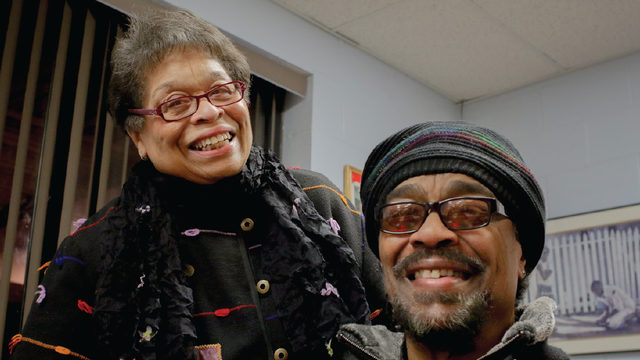The first edition of the Wisconsin Free Press hit the streets on April 3, 1984. It debuted on the eve of the 16th anniversary of the death of Martin Luther King Jr. and was the only local publication on that day to attempt to capture what King’s legacy has meant to African Americans in Madison. Looking back on the planning, research and writing that went into that first edition, we didn’t realize it would be the first in a long line of endeavors to help educate the Madison area about issues impacting the local black community.
We, the authors of this column, met on Sept. 8, 1983, and were introduced to each other by Kwame Salter, a mutual friend and a former president of the Madison Metropolitan School Board. We both were interested in writing. One of us (Gaddi Ben Dan) had worked in Chicago as a publisher of a community newspaper and was a crackerjack marketer. The question was, could he do the same thing in Madison? The other half of this team (Betty Banks) loved to write, but had no journalistic or publishing background. Still, she wanted to make a difference in the lives of people in Madison.
We often had long discussions about education and the importance of children doing well in school. (The 2013 Race to Equity Report would find, among many startling statistics, that only 49.9 percent of Madison’s black students graduate on time.) In the 1980s, we organized a weekend of back-to-school activities that included a festival at the Villager Mall and an outdoor concert featuring popular music groups and local rappers. What followed were other concerts at Warner Park, plus performances by local acts at West High School. These concerts focused on encouraging young people to do well in school and furthering their education. Meanwhile, the Wisconsin Free Press was publishing and dealing with serious issues, such as drug abuse, alcohol and tobacco use and how to prevent addiction. While doing research for a WFP series called “Drugs in Madison,” we held conversations with youths that revealed startling information about kids’ abuse of addictive substances. Always seeking solutions, we began to think outside of the box about how to promote positive lifestyles and create opportunities to make positive choices.

(Photo by A. David Dahmer)
Both of us were familiar with “Soul Train,” a television show in Chicago that featured popular artists performing and teens showcasing the latest dance moves. “Why not model a TV show after such a program, but with a twist?” we speculated. After much discussion, we created “Club Today Not Tomorrow,” or “Club TNT,” based on the idea that if young people make the right decisions today, they won’t deal with the consequences of risky behaviors tomorrow. We also connected with then-Gov. Tommy Thompson’s Alliance for a Drug Free Wisconsin. An important aspect of the show centered on youth speaking to their peers about issues they face by creating skits and performance art, which helped build skills and provided a creative outlet. Ultimately, we reinforced messages about the importance of staying in school, listening to their parents and avoiding joining gangs. In 1989, “Club TNT” began filming at Wally Gator Teen Club on Gorham Street for a show that aired Saturdays on WMSN-TV Fox 47. Teens eagerly embraced the concept, danced and created a community of young people who were excited to reach their peers with positive messages.
We were the first African Americans in the Madison area to create, write and produce an hourlong show on local network television and remain in that position. In January 1990, the owners of DJ’s Teen, an alcohol-free nightclub in Wisconsin Dells, approached us about producing a similar show, and we began filming there in March of that year.
Financial difficulties caused “Club TNT” to go off the air and the Wisconsin Free Press to cease publication. But we maintained our determination to have a presence in the community because of our commitment to help young people in Madison.

In 2003, we brought back “Club TNT” with a fresh take, and with the help of former “Club TNT” host Ralph Cohen, editor/producer Jeanne Erickson and webmaster/producer Bill Breitspecher. It was a new century. New technology and new ideas were hatched. Animation was introduced on the show. We collaborated with individuals too numerous to mention and received assistance and support from CUNA Mutual Group. We tackled issues such as gun safety, and the negative effects of drugs, tobacco and alcohol. Today Not Tomorrow Inc. became a nonprofit organization that we ran, along with producing “Club TNT.”
Over the years, we became the broadcast media outlet for local communities of color, at times the only station to cover an event. Over the past four years, Today Not Tomorrow Inc. has worked with the Race to Equity project, raised its voice about homeless children, worked in neighborhoods with Project Babies and the Neighborhood Spaces and Family Support project, and in 2017, opened the Today Not Tomorrow Family Resource Center that is located in the same building as the East Madison Community Center at 8 Straubel Court.
“Club TNT” airs on TVW-14 with a mission of strengthening families, providing information and education and resources in the community and being a voice for the voiceless. We hope to continue that mission for Madison’s youth.
This article originally was published in Madison Magazine.




























